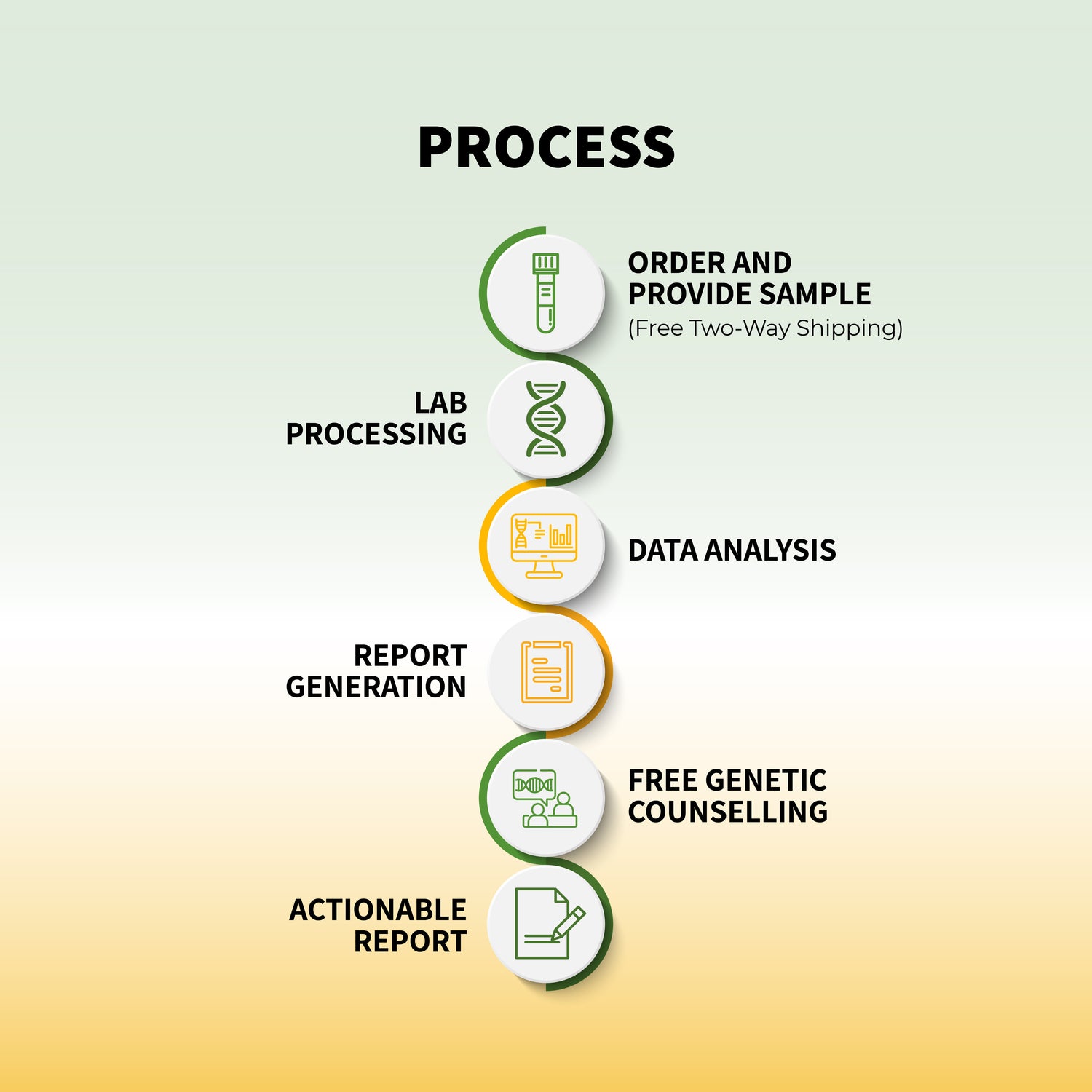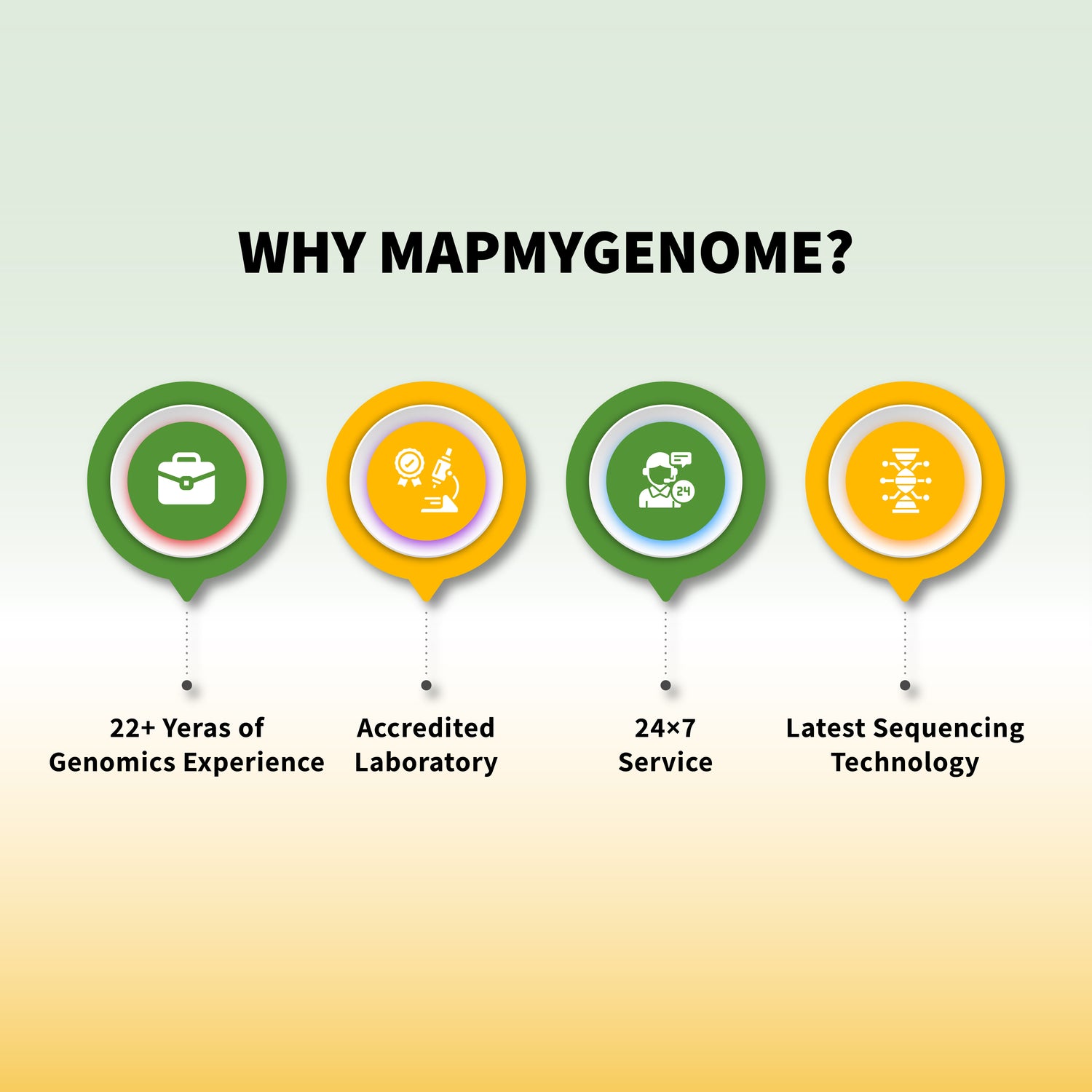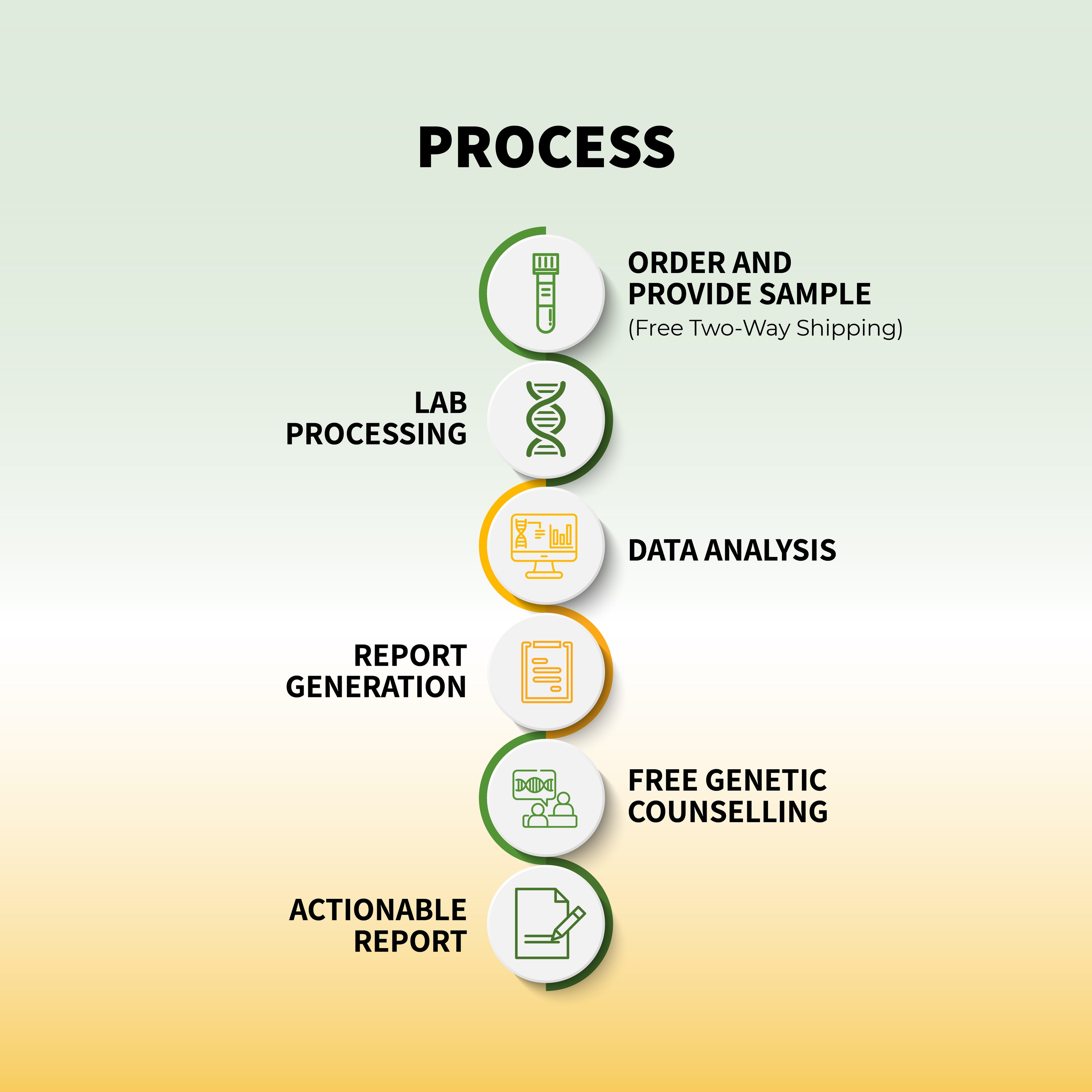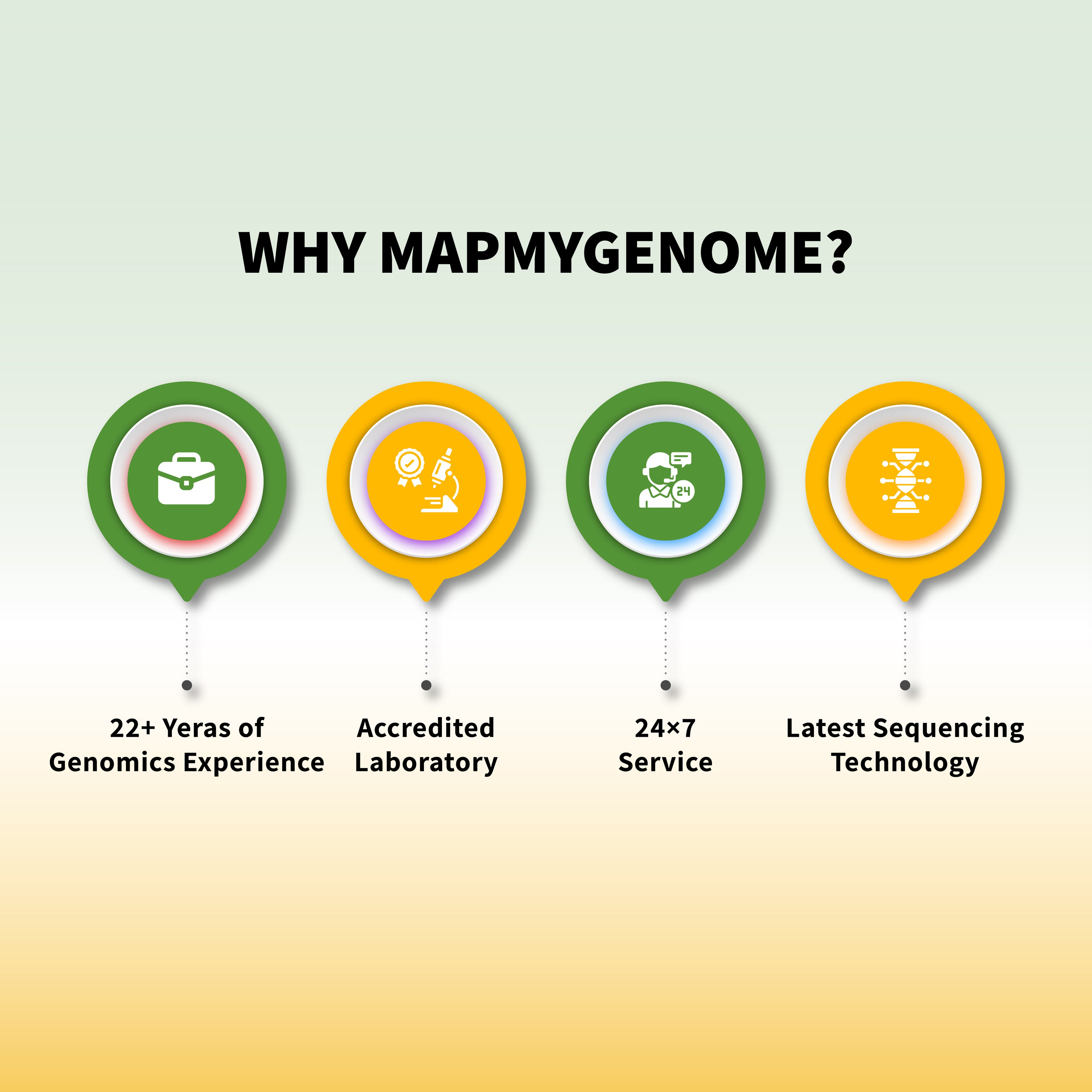Lactose intolerance is a common condition that affects millions of people worldwide. If you’ve ever felt bloated or uncomfortable after consuming dairy products, you’re not alone. This blog will explore the causes, symptoms, and treatments for lactose intolerance and how genetic testing can offer valuable insights.
What Is Lactose Intolerance?
Lactose intolerance is the inability to digest lactose, a sugar found in milk and dairy products. This happens due to a deficiency in lactase, an enzyme produced in the small intestine that helps break down lactose into glucose and galactose for absorption.
Types of Lactose Intolerance
-
Primary Lactose Intolerance: The most common type, caused by a natural decline in lactase production with age.
-
Secondary Lactose Intolerance: Results from an illness or injury to the small intestine, such as Crohn’s disease or celiac disease.
-
Congenital Lactose Intolerance: A rare genetic condition where lactase production is absent from birth.
-
Developmental Lactose Intolerance: Temporarily occurs in premature infants due to underdeveloped digestive systems.
Common Symptoms of Lactose Intolerance
When individuals with lactose intolerance consume dairy products, they may experience:
-
Bloating
-
Diarrhea
-
Gas
-
Stomach cramps
-
Nausea
These symptoms typically appear 30 minutes to 2 hours after consuming lactose-containing foods.
The Role of Genetics in Lactose Intolerance
Did you know your genes play a significant role in determining whether you are lactose intolerant? Genetic variations can influence the activity of the lactase enzyme. For example, certain populations are more likely to retain lactase production into adulthood, while others experience a decline.
Genetic Testing for Lactose Intolerance
Testing for lactose intolerance has advanced significantly with genetic testing. A simple saliva or blood sample can reveal whether you carry genetic markers associated with lactase deficiency. This non-invasive test provides precise information about your lactose tolerance levels.
Benefits of Genetic Testing:
-
Accurate Diagnosis: Helps distinguish lactose intolerance from other digestive disorders.
-
Personalized Diet Plans: Offers tailored advice to manage your condition effectively.
-
Preventative Care: Identifies potential risks early to avoid complications.
Managing Lactose Intolerance
Lactose intolerance doesn’t mean you have to eliminate dairy entirely. Here are ways to manage the condition effectively:
Dietary Adjustments
-
Lactose-Free Products: Opt for lactose-free milk, yogurt, and cheese.
-
Plant-Based Alternatives: Almond, soy, oat, and coconut milk are excellent substitutes.
-
Fermented Dairy: Yogurt and aged cheeses often contain less lactose and are easier to digest.
-
Read Labels: Watch out for hidden lactose in processed foods.
Lactase Supplements
Over-the-counter lactase enzyme supplements can help digest lactose when taken before meals containing dairy.
Gradual Reintroduction
Some people can tolerate small amounts of dairy. Gradually reintroducing lactose can help you identify your tolerance level.
Nutritional Considerations
Since dairy is a primary source of calcium and vitamin D, consider alternative sources like:
-
Leafy greens
-
Fortified plant-based milk
-
Almonds
-
Tofu
The Future of Lactose Intolerance Treatment
Advancements in technology and research continue to offer hope for those with lactose intolerance. Here are some promising developments:
-
Probiotics: Certain strains of probiotics can improve lactose digestion and overall gut health.
-
Genetic Engineering: Researchers are exploring ways to alter gut bacteria to produce lactase.
-
Precision Medicine: Personalized treatment plans based on your genetic profile are becoming increasingly accessible.
Frequently Asked Questions (FAQs)
1. What is lactose intolerance?
Lactose intolerance is the inability to digest lactose, a sugar found in dairy products, due to a lack of the lactase enzyme.
2. How is lactose intolerance diagnosed?
Diagnosis can involve genetic testing, a lactose tolerance test, a hydrogen breath test, or a stool acidity test.
3. Can lactose intolerance be cured?
While there is no cure, the condition can be effectively managed through dietary adjustments, supplements, and probiotics.
4. Is lactose intolerance hereditary?
Yes, genetics play a significant role. A genetic test can help determine if you’re predisposed to lactose intolerance.
5. What foods should I avoid?
Avoid milk, cheese, cream, and other dairy products unless they are labeled lactose-free. Check for hidden lactose in processed foods as well.
6. Can I still get enough calcium without dairy?
Yes, non-dairy sources like fortified plant-based milk, tofu, almonds, and leafy greens can provide adequate calcium.
Conclusion
Lactose intolerance is a manageable condition, especially with today’s advanced diagnostic tools like genetic testing. By understanding your unique genetic makeup, you can take control of your diet and health, avoiding unnecessary discomfort and ensuring you get the nutrients your body needs. Whether it’s through dietary adjustments, lactase supplements, or the latest scientific advancements, living with lactose intolerance has never been easier.
Take the first step towards a healthier life today by considering genetic testing for lactose intolerance. Your journey to understanding your body better begins now!

















